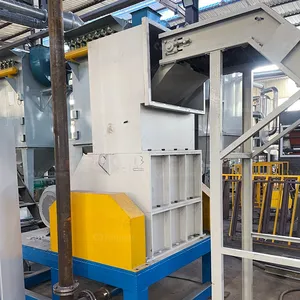Understanding Ecosystem Sustainability
Ecosystem sustainability is the ability of an ecosystem to maintain its structure, function, and diversity over time while adapting to external stressors. In today's rapidly changing environment, fostering ecosystem sustainability is pivotal for the health of our planet. By understanding the key components that contribute to a sustainable ecosystem, businesses can play a vital role in conservation and resource management.
Types of Ecosystem Sustainability
- Terrestrial Ecosystems: These ecosystems include forests, grasslands, and deserts, each playing a unique role in carbon storage and biodiversity.
- Aquatic Ecosystems: Comprising freshwater and marine environments, these ecosystems support a wide array of organisms and contribute to global water cycles.
- Urban Ecosystems: As cities expand, integrating green spaces and sustainable practices becomes essential to support local flora and fauna.
- Agroecosystems: These are agricultural systems optimized for both productivity and sustainability, focusing on sustainable farming techniques that minimize environmental impact.
Applications of Ecosystem Sustainability
- Conservation Efforts: Efforts aimed at preserving natural habitats significantly contribute to maintaining biodiversity.
- Renewable Resource Management: Sustainable usage of resources like water, soil, and forests ensures these resources remain available for future generations.
- Climate Change Mitigation: Sustainable ecosystems contribute to carbon sequestration, helping to combat climate change.
- Community Engagement: Local communities can engage in sustainable practices, promoting awareness and participation in ecological preservation.
Features and Advantages of Ecosystem Sustainability
- Biodiversity Support: Sustainable ecosystems promote a diverse range of species, essential for resilience against environmental changes.
- Resource Efficiency: Ecosystem sustainability utilizes resources efficiently, reducing waste and enhancing productivity.
- Long-term Economic Benefits: Investing in sustainability often leads to lower costs and increased profitability in the long run.
- Enhanced Quality of Life: Healthy ecosystems contribute to cleaner air, water, and improved overall human health.
How to Promote Ecosystem Sustainability
- Integrate Sustainable Practices: Businesses should adopt eco-friendly practices, such as waste reduction and recycling.
- Invest in Green Technologies: Utilizing renewable energy sources can significantly diminish a company's carbon footprint.
- Educate Employees and Communities: Spreading awareness about the importance of ecosystem sustainability can engage more individuals in conservation efforts.
- Support Sustainable Supply Chains: Partnering with suppliers committed to sustainable practices ensures a collective effort towards ecosystem preservation.















































